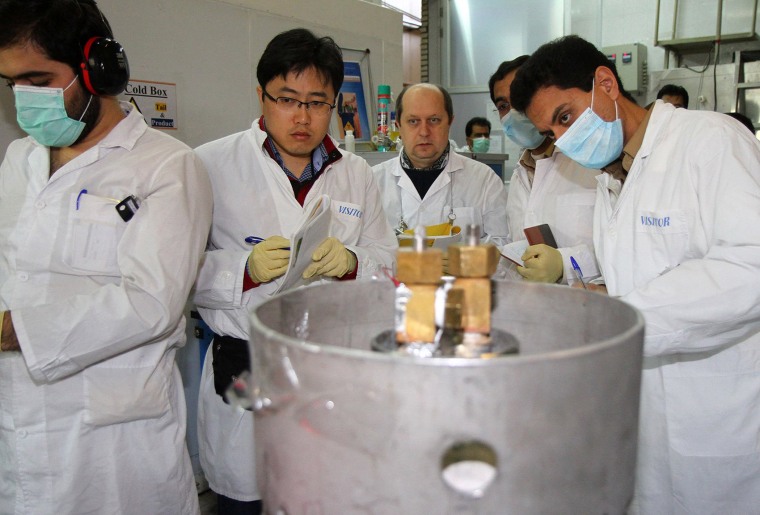The Republican Party's strained relationship with modern science has grown more serious in recent months. GOP leaders have struggled, repeatedly, when confronted with scientific questions related to climate change, evolution, contraception, vaccinations, and in one recent instance, hand-washing.
But it now appears we can add a new one to the list: the science of nuclear policy in Iran.
The Senate Foreign Relations Committee, led by Chairman Bob Corker (R-Tenn.), will formally begin tackling a very controversial bill today: a proposal to expand Congress' role in international nuclear talks. In theory, the technical details surrounding the still-ongoing diplomatic efforts would be critically important, but Politico had an interesting piece the other day noting that congressional Republicans have effectively decided science doesn't matter.
Republicans will present plenty of arguments against the Iran deal in the coming weeks — but there will be no big push to knock down the scientific case for the deal, according to GOP aides and outside experts. Instead, the GOP case will rest largely on convincing the public that the deal would give away too much and end too soon and won't spend a lot of time challenging the Obama administration on the science.
The report noted that the White House has focused heavily on the scientific details, "arguing that there are enough technical restrictions to guarantee that it couldn't build a bomb without getting caught." To that end, the administration has not only emphasized technical arguments from Energy Secretary Ernest Moniz, the former MIT physics professor, but other proponents of the framework "have gathered enough signatures from nuclear nonproliferation specialists, including scientists, to show that there's a lot of support for the deal from experts."
One White House official told Politico, "We're never going to win over those playing politics, but [for] all those seeking to make sound judgments -- then yes -- we expect the science to be compelling."
To which Republicans have effectively replied, "Science, schmience. This is about politics."
In this case, that's not really much of an exaggeration. The article quoted a spokesperson for House Speaker John Boehner (R-Ohio) saying, "The 'scientific' case is not really the issue." An aide to right-wing Sen. Tom Cotton (R-Ark.) added the White House "is pushing the science-heavy argument for the Iran deal because they know they have nothing else."
What a curious response. As Cotton sees it, other than scientific facts, the support of the American public, the support of most U.S. allies, and the support of policy experts, the White House is playing an awful hand that Republicans are eager to defeat.
In case GOP lawmakers -- or anyone else -- have forgotten the difference between a centrifuge and a spent-fuel rod, I found Rachel's recent segment on this really helpful. Maybe some members of Congress should take a few minutes to watch it.
